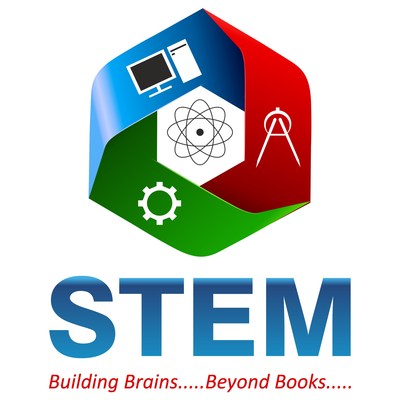A Quacquarelli Symonds (QS) report titled ‘Indian Students Mobility Report 2020’ has said that 51.59 per cent of students in non-STEM (Science, Technology, Engineering and Mathematics) fields changed their higher studies plans abroad in the wake of the COVID-19 pandemic. According to this report, the students have changed their plans after considering that in a post-COVID world, there will be greater demand for STEM graduates. This in itself highlights the importance of STEM education in today’s day and age, where one can also see the huge gap between the academia and industry demands. The pandemic and its outcome has further brought the mismatch out in the open, with a clear stamp on the skills gap. This gap needs to be filled, students needs to be prepared for an ever-changing world and a process needs to be implemented which gives way to a lifetime of learning. In other words, rote-based learning needs to be replaced by hands-on learning at the nascent stage, so that the students develop interest in the fields at the young age and can grow up to become innovators, scientists, and engineers and can make their own choices.
Since 2011, STEM Learning, accredited by STEM.org, an international organization for STEM authorization, is playing a pivotal role in shaping the country’s future in a globalised world. It also believes that early exposure to STEM supports children’s overall academic growth develops early critical thinking and reasoning skills, thus coming out with an innovative solution of Mini Science Centre (MSC). The MSCs consist of plug and play exhibits, which serve as teaching aids, and assist the teachers to explain science and maths concepts to students easily. The installation of the MSCs is supported by corporates through CSR in education, while the implementation is done by STEM Learning. The focus of the MSCs is on changing the way science and maths are being taught. Spread across 23 states of the country in more than 1900 schools, the MSCs, through hands on learning method, have been able to develop the scientific temper of more than a million students. More than 8000 teachers have also been empowered through multiple Teacher Training Programs, so that they can maximise the utilization of the teaching aids, in the MSC or classrooms. The mission of the company is to slowly transform the teaching pedagogy, so that the teachers and students can have a better ‘connect’ with each other, as the children are able tofea understand the concepts better if they are explained with the teaching aids in hands.
Since these MSC exhibits are plug and play, the students are also able to explore its working to understand the concept easily. This leads to faster learning and reduction in teaching time. Added to that is also the fact, that these students are able to teach other students once they have understood the concept, leading to peer to peer learning. Since the MSC is a permanent set up, it also leads to development of the school in STEM field.
Along with MSCs, STEM Learning has also introduced Tinkering Labs, where students use technology and build models to develop 21st century learning skills, leading to curiosity, innovation and problem solving skills. STEM Learning, along with corporate support, has been able to provide students from government schools equal access through these MSCs and Tinkering Labs, so that these young minds can also think about and realize their dreams of STEM-induced careers in the future.
And that is not all; From its second year onwards, STEM Learning provides multiple platforms to these students to showcase their STEM skills, inculcated with the help of MSCs and Tinkering Labs. The company organizes intra and inter school Quiz and Model Making Competitions, to make the students ready for competitive exams. It also organizes the National STEM Awards, India’s biggest STEM competition for under-served students of government and government-aided schools. Last organized in February 2020, the awards witnessed a humongous participation from 20 states, 200 schools, 400 teachers and 1800 students. This exemplifies the hunger and zest among these children, who want to display their abilities on a nation-wide platform. The Cluster Rounds for the finale to be held in 2021 have already begun now, albeit virtually, in the wake of Corona pandemic. However, this has not deterred hundreds of students, who have registered themselves and have been enthusiastically waiting each week, to demonstrate their creativity & knowledge.
While speaking about this rare opportunity provided to students through the awards, Mr Ashutosh Pandit, the Founder of STEM Learning, said, “We want to provide an equitable platform to the under-served students, who have been able to inculcate STEM knowledge with the help of our Mini Science Centres. I am extremely happy to see that all the students have been able to bring their talent, creativity & imagination to the fore, when provided this opportunity to them. Even though we have been forced to go virtual this year, we have been getting a lot of good surprises since the students have been demonstrating a brilliant flow of inventiveness and creative abilities. The students are learning, exploring and participating while at home. The teachers too have been constantly supporting and motivating the students to participate in the competition, so that they can get an exposure on a national level. I am thrilled, and so is my team, to see such a positive response, despite the current situation, which just motivates us to go bigger every year and make the students proud of us.”
In its mission to provide holistic education to these students, STEM Learning has also been inviting scientists for guest lectures in the schools, so that the students can learn from experienced scientists who have contributed excessively to the field. These sessions become knowledge sharing platforms where the acclaimed guest speakers share their experiences with teachers and students and also resolve their queries during the special Q&A sessions.



